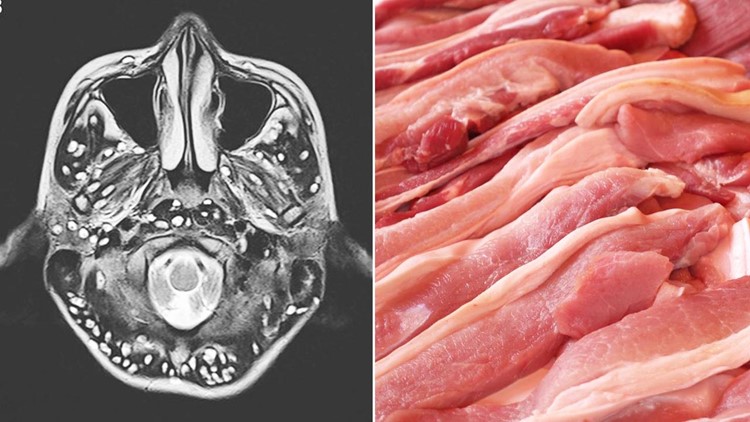How should you ensure food safety when eating and preparing meats?
After an 18-year-old in India died of tapeworms after consuming undercooked pork, pediatric gastroenterologist Dr. Bridget Dowd is offering her expert advice to cook food properly.
“Tapeworm is a parasite that can cause infection in humans after eating undercooked or raw pork or beef,” Dowd explained. “The more common infection that can happen is a mild illness. You might not have any symptoms or you can have nausea, vomiting, diarrhea.”
The teen, however, checked into a Faridabad hospital with seizures and pain in his groin, according to a study in the New England Journal of Medicine. He was also confused and had swelling over his right eye.
Initial tests showed he had lesions in his brain and cysts in his eye and groin, and doctors determined he had a condition called neurocysticerosis, which occurs when someone eats tapeworm from pork. Even though doctors treated immediately, the teen died of his illness two weeks later.
Dowd explained that there are two types of parasite infections — one that can be easily treated with antiparasitic medications and another that can lead to more serious issues.
“This is unusual in the U.S.,” Dowd said. “It typically happens in the developing world where cattle and swine are grazing in a field with human feces.”
Cases in the United States often occur among people who have traveled outside of the country or among immigrant populations.
To err on the side of caution, Dowd suggested to always cook beef or pork to 145 degrees Fahrenheit, or at least medium rare, and wild game and ground beef to 160 degrees Fahrenheit.
“Make sure you are not eating raw or undercooked meat,” she said.
Meats that have been frozen for at least four days in 23 degrees Fahrenheit, or about the temperature of a residential freezer, will generally kill off any harmful eggs or cysts that might occur in the cuts of meat.
And, most importantly, basic hygiene like proper hand washing is crucial to staying healthy.
“Make sure to wash your hands before you eat food and also good hand hygiene for people handling food,” Dowd said. “And, after going to the bathroom, wash your hands.”
RELATED STORIES
Hiker With Antivenom Allergy Survives Rattlesnake Bite Thanks to New Antidote
Preschooler With Dairy Allergy Killed by Grilled Cheese Sandwich, Family Says


